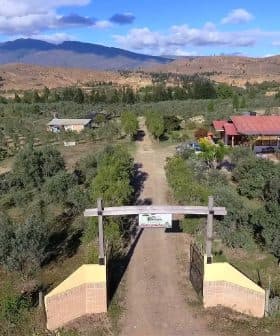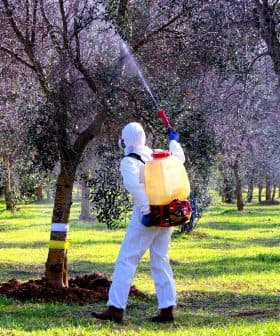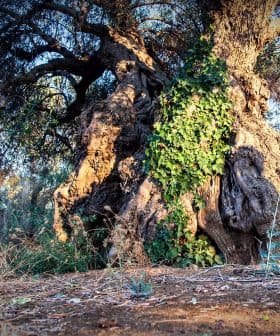Events Across Italy Set to Celebrate Traditional Olive Groves
Nearly 170 cities across the country will hold educational, cultural and tasting events in traditional olive groves and mills.
A record number of Italian municipalities are participating in a nationwide initiative to promote oleotourism, with events planned in 168 locations on October 30th to allow visitors to taste local olive oil and traditional food specialties. The goal of the initiative, organized by the Città dell’Olio association, is to raise awareness of the environmental benefits of olive tree cultivation and the risks posed by the abandonment of traditional olive groves.
A record-breaking number of Italian municipalities have chosen to join a nationwide initiative to promote oleotourism.
On October 30th, events in 168 locations will bring thousands of locals and tourists to olive groves, small villages, historic sites and ancient mills.
We intend to raise awareness among the population and encourage the government to promote traditional and sustainable olive growing.
Visitors will have the chance to taste local extra virgin olive oil and other traditional olive oil-based food specialties.
Since the event coincides with the start of the olive harvest in many parts of the country, visitors will also have the opportunity to try freshly-produced olive oil.
See Also:A New Project to Promote Olive Oil Roads in PugliaThe ‘Walking Among Olive Trees Day’ includes various events designed to allow participants to “embrace the olive trees,” according to the organizers.
Visitors will be invited to join hands and form circles to hug the olive trees, celebrating the ancient relationship between the local people and trees.
In the 17 Italian regions involved, there will be itineraries for a walk from two to seven kilometers through the olive groves.
“Each municipality has selected a route among the olive trees with unique characteristics from the historical and environmental point of view that ends in a mill, an olive farm or a historic building where participants will be offered a tasting of bread, oil and typical products,” organizers said in a press release.
In Fasano, in the heart of the southern region of Puglia, visitors will explore a unique area known as Lama del Trappeto (Blade of Trappeto, in Italian), which was named for the shape of the channel that collects rainwater and brings it to an ancient underground olive mill.
In the mill, participants will assist in the olive oil production process following ancient tradition and using historical tools such as millstones and presses. The event will also include a guided walk through the century-old olive grove and end with a tasting event.
Meanwhile, in Chiavari, Liguria, in northwestern Italy, visitors will walk from the city center to the olive groves with a local guide who will explain the city’s history and discuss the specifics of local olive growing.
A local theatrical association will perform in the groves, and tastings will be offered in the historical site of Palazzo Rocca, once home to many olive trees.
The network of involved municipalities is part of the Città dell’Olio, an association that includes more than 400 olive-growing municipalities.
Michele Sonnessa, the association’s president, told Olive Oil Times that the event’s goal is to raise awareness of the environmental benefits of olive tree cultivation and the risks posed to traditional olive groves by the pattern of abandonment among the younger generation.
According to research from the International Olive Council, “in the production of 1 liter of olive oil, olive trees remove 10 kilograms of CO2 from the atmosphere.”
“[With this initiative] we intend to raise awareness among the population and encourage the government to promote traditional and sustainable olive growing,” Sonnessa said, warning that the government must act soon to address the impending demographic crisis facing traditional olive oil production.
“That is why we planned a symbolic and concrete gesture, a shared and collective hug which will help witness the passion we nurture towards the plant that, more than any other, protects the environment,” he added. “And to witness the community’s commitment to preserve the growing olive landscape and restore abandoned farmland.”
According to the promoters, there are many similarities in local olive oil cultures throughout the country, but specific differences exist in the different regions.
“Therefore, such an initiative is a way to promote oleotourism based on the enduring heritage of our territories, a value that will build wealth for future generations,” the association said in a press release.
“From north to south, thousands of participants will join hands and create human circles around the olive trees in the Cities of Olives,” Sonnessa concluded. “Small gestures [such as this] might have a multiplying effect on the population and [ultimately] change things.”
Share this article









